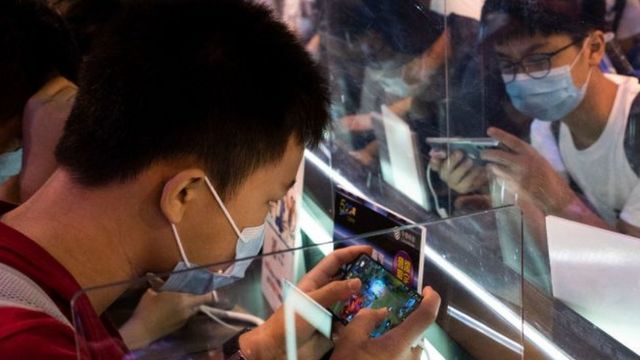
[ad_1]
The shares of two of China’s largest online gaming companies fell after state media called them “cyber-drugs.”
Shares of “Tencent” and “NetEase” fell more than 10 percent at the start of trading on the Hong Kong Stock Exchange, before regaining some of those losses.
Investors are increasingly concerned about Beijing’s crackdown on businesses.
In recent months, the authorities have announced a package of measures aimed at tightening their grip on private technology and education companies.
An article published by the government newspaper “Economic Information Daily” affiliated with China’s new “Xinhua” news agency, stated that many teenagers have become addicted to Internet games, and this has affected them negatively.
The article cited Tencent’s popular game Honor of Kings, saying students play it for up to eight hours a day and called for more restrictions on the gaming industry.
The article added, before comparing online games to “spiritual opium”: “We cannot allow the development of a sector or a sport at the cost of destroying a generation”.
Tencent said it would adopt new measures to limit children’s access and the time they spend playing Honor of the Kings, adding that it also intends to apply the policy to all of its children. games.
Stock prices rebounded after the Economic Information Daily removed the article from its account on the social media platform WeChat.
Tencent’s shares plunged last week after it was asked to end exclusive music licensing deals with record companies around the world.
The move is aimed at countering the tech giant’s dominance of music streaming on the country’s online platforms, as it currently owns more than 80% of the exclusive rights to music streaming in China, after an agreement reached in 2016.
Tencent is one of several Chinese companies listed in the United States, Hong Kong and the Chinese mainland, which is experiencing a sharp decline in its shares this year in light of Beijing’s tightening of restrictions on the sectors of the technology and education in the country.
Shares of private online education companies in China also declined last week, after they were deprived of the opportunity to make a profit by teaching basic subjects.
The new measures also imposed restrictions on foreign investment in the sector.
The major policy shift comes at a time when authorities seek to alleviate financial pressures associated with raising children.
Officials expressed concern after the latest Chinese census showed the birth rate had fallen to its lowest level in seven decades.
The move is also one of the biggest reforms ever to the country’s $ 120 billion private tutoring sector.
Source link
